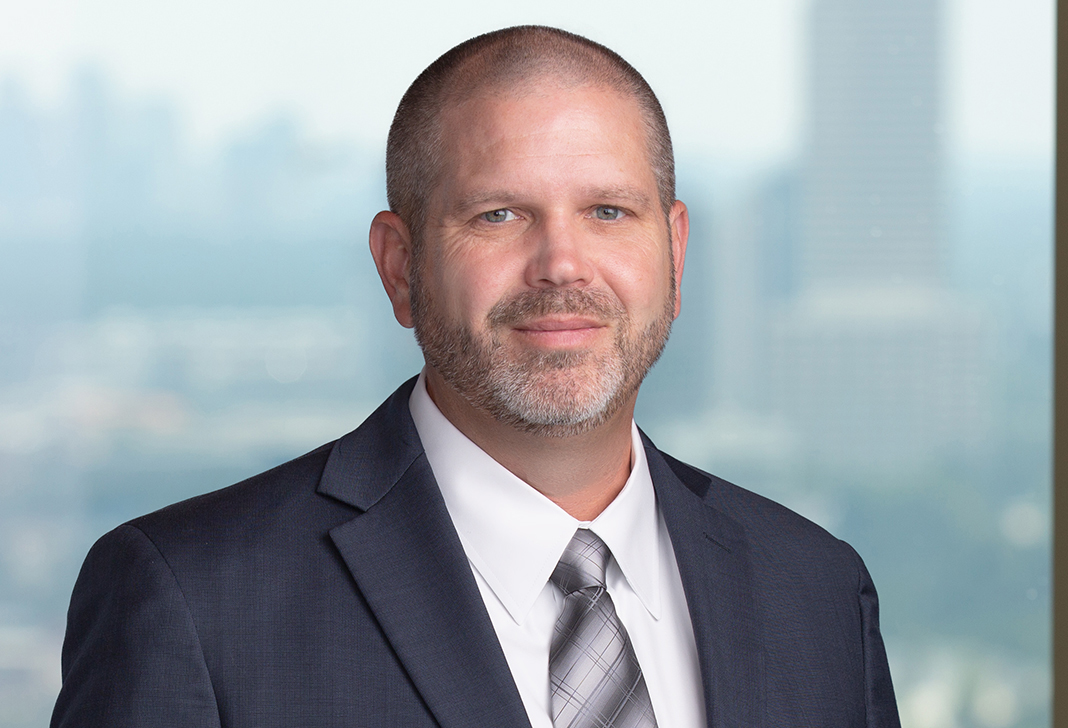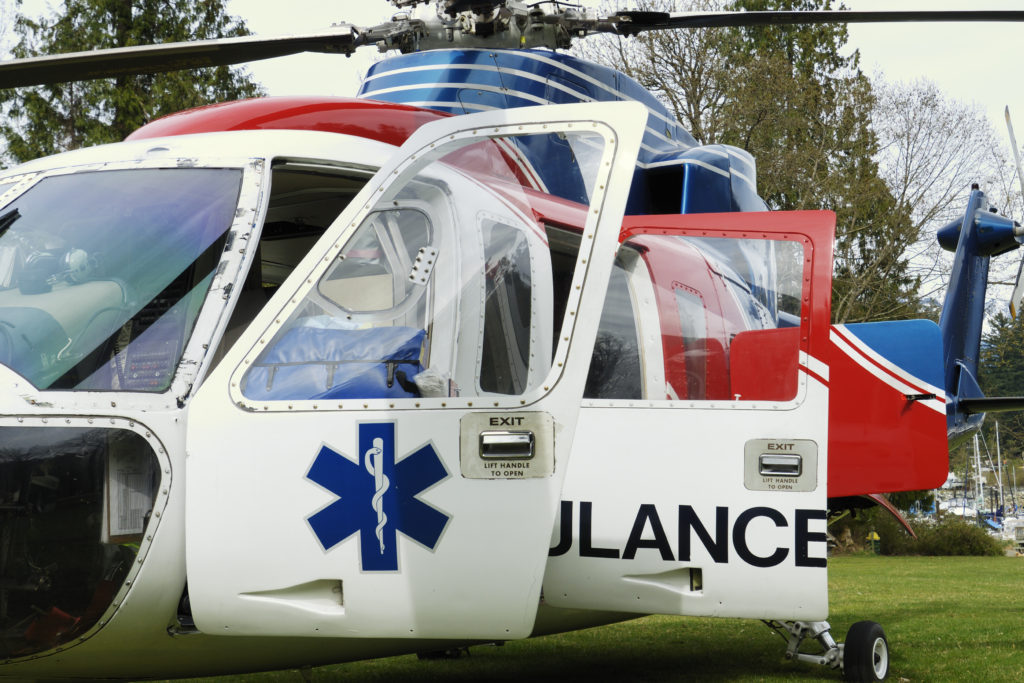Federal law may prohibit states from regulating prices charged to insurers by air ambulance providers, but that doesn’t absolve the Workers’ Compensation Board of its responsibility to determine whether the billed charges are “usual and customary,” a split Kansas Supreme Court ruled Friday.
The high court’s decision says that both the board and the Court of Appeals erred when ruling on a dispute between Travelers Insurance and EagleMed LLC over air-ambulance charges.
The board ruled that Travelers must pay the full amount billed because the Airline Deregulation Act passed by Congress in 1978 preempts any state regulation of prices charged by air carriers. The state Court of Appeals agreed that federal law prohibits state price controls, but decided that means the board lacks authority to make Travelers pay anything.
The Supreme Court majority took a middle course. In an opinion written by Justice Dan Biles, it remanded the case and directed the Workers’ Compensation Board to determine whether the fees charged by EagleMed are “usual and customary” as required by the state’s workers’ compensation fee schedule adopted in 2012.
“We need not precisely construe the term ‘usual and customary’ or decide any preemption question without first having the Board’s administrative fact-finding about EagleMed’s billed charges and its application of the facts to the 2012 fee schedule,” the opinion says. “But we do hold the 2012 fee schedule requires billings for air ambulance services to be supportable by evidence that the charges are usual and customary.”
The Kansas Supreme Court is the third state high court to rule on a question that has spawned litigation across the nation. Many state workers’ compensation agencies adopted rules that restrict the prices that air ambulance providers can charge, despite the Airline Deregulation Act.
The Texas Supreme Court ruled that a federal law, the McCarran-Ferguson Act, leaves the regulation of insurance completely up to the states and preempts the airline law. The US 5th Circuit Court of Appeal, however, effectively overruled that decision.
The Wyoming Supreme Court ruled in another case involving EagleMed that the airline law does preempt the state fee schedule. The 10th Circuit affirmed a US District Court ruling that reached the same conclusion.
In Kansas, EagleMed submitted invoices to Travelers for transporting four injured workers with billed amounts for each ranging from $21,597 to $33,043. Travelers offered to pay what would be paid under Medicare reimbursement rates, which ranged from $4,704 to $8,011. (Medicare is not restricted by the Airline Deregulation Act, which addresses state regulations.)
EagleMed asked the Kansas Division of Workers’ Compensation to resolve the disputes. The division consolidated the cases. A hearing officer ruled that the Airline Deregulation Act does not preempt the state fee schedule because the McCarran-Ferguson Act leaves the regulation of insurance up to the states. On appeal the Workers’ Compensation Board decided that the airline law does preempt the fee schedule and ordered Travelers to pay the billed amount. The Court of Appeals agreed that the airline law applies, but determined that the state couldn’t order Travelers to pay anything.
The Kansas Supreme Court said the Airline Deregulation Act does not prohibit disputes about prices from being litigated in state forums. The majority opinion says it cannot be known whether the state’s fee schedule “crosses over into forbidden territory” until it is applied to a given case.
“So this controversy cries out for adherence to the schedule’s terms—administrative fact-finding on whether EagleMed’s billings seek to recoup ‘usual and customary charges’ in accordance with federal law,” the opinion says.
Two justices joined a separate opinion that dissented, in part, to the majority view. Justice Stegall wrote that the court’s majority had pushed the dispute into “even darker and more tangled thickets.”
“I certainly wish the Board and its lawyers well in their forthcoming efforts to understand and solve the impossible puzzle the majority has set for them,” he wrote in an opinion joined by Justice Patrick D. McAnany.

William L. Townsley, with the Fleeson, Gooing, Coulson & Kitch law firm in Wichita, argued the case for Travelers. While he didn’t prevail on all of his points, Townsley said he is happy that the court directed the Workers’ Compensation Board to determine whether EagleMed’s billed charges are usual and customary.
Townsley said one of his frustrations with the case is that after years of litigation no hearing has been held to conduct fact finding and determine whether EagleMed’s billed charges are appropriate.
“The offensive thing in this is the air ambulance carrier’s arrogance of saying, ‘here’s our price, that’s what we charge, therefore that’s what is reasonable and necessary.”
Townsley said requiring the board to determine whether the billed charges are usual and customary will give him an opportunity to go through discovery and perhaps apply some leverage that will induce a settlement for a lesser amount.

Joshua L. Fuchs, with the Jones Day law firm in Houston, argued the case for EagleMed. He said he’s not worried about discovery because EagleMed can show that it charged Travelers the same rates it charges everyone else.
Fuchs said he isn’t completely satisfied with the decision, but the Supreme Court agreed with his major points: The Airline Deregulation Act preempts any state control over air ambulance rates and Medicare rates are not relevant to the case.
Fuchs said Medicare rates cover only 60 percent of the cost of providing air ambulance services, yet insurers try to use the “flawed healthcare system” to argue for a discount.
“The Medicare rate doesn’t cover anything close to the cost of a single transport,” he said. “Despite knowing that, Travelers wanted to use that number to pay something less than the true cost.”
Was this article valuable?
Here are more articles you may enjoy.


 Why 2026 Is The Tipping Point for The Evolving Role of AI in Law and Claims
Why 2026 Is The Tipping Point for The Evolving Role of AI in Law and Claims  Credit Suisse Nazi Probe Reveals Fresh SS Ties, Senator Says
Credit Suisse Nazi Probe Reveals Fresh SS Ties, Senator Says  Portugal Rolls Out $2.9 Billion Aid as Deadly Flooding Spreads
Portugal Rolls Out $2.9 Billion Aid as Deadly Flooding Spreads  LA County Told to Pause $4B in Abuse Payouts as DA Probes Fraud Claims
LA County Told to Pause $4B in Abuse Payouts as DA Probes Fraud Claims 